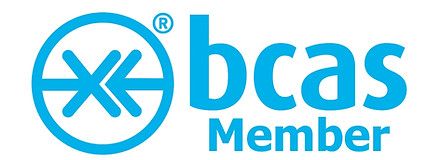Data logging a compressed air system
The foundations of performance and energy efficiency
Why data logging matters
Compressed air is one of the most expensive utilities in manufacturing, often accounting for 10–15% of a plant’s electricity use. Yet without accurate measurement, inefficiencies remain hidden. Data logging provides the visibility needed to understand how your system is performing, where energy is being wasted, and how improvements can be made.
At BCAS, we use advanced logging equipment and software to capture detailed information on pressure, flow, current, and power consumption. This data forms the foundation for actions that can helping you cut costs, improve reliability, and ensure your system is fit for the future.
The benefits of data logging for compressed air systems:
Energy efficiency and cost savings
- Establishing a baseline: Logging shows exactly how much power your compressors are using, whether they are performing to specification, and what this means in terms of running costs.
- Leak detection: By mapping demand patterns over time, logging highlights unexpected usage during shutdowns — often a sign of leaks. With average system leakage rates at 25% (and sometimes as high as 80%), identifying and addressing air leaks can deliver substantial savings.
- Right-sizing equipment: Before investing in new plant, logging ensures you select the most efficient machine for your process, avoiding excessive running costs or insufficient pressure.
Optimised performance
- Demand analysis: Logging reveals peaks and troughs in air usage, helping you match compressor output to actual demand.
- System optimisation: With accurate data, you can adjust pressure settings, schedule maintenance more effectively, and ensure your system is correctly specified.
- Future-proofing: As an organisation expands, often their compressed air requirements evolve. Data logging provides the insight needed to plan for growth and ensure new systems accommodate future capacity.
Reliability and uptime
- Monitoring fluctuations: Compressed air systems operate under constantly changing conditions. Logging multiple parameters allows us to analyse how compressors respond to pressure changes and identify areas for improvement.
- Reducing breakdowns: By spotting issues early, logging helps prevent costly downtime and ensures a consistent supply of air to production.
- Audit-ready reporting: Our software generates clear charts and reports, providing evidence for compliance checks and ISO certification, while also demonstrating the effectiveness of any improvements made.
The BCAS approach
We typically fit data loggers for 7–14 days to capture weekday and weekend demand patterns. Using high-quality sensors and advanced software, we analyse the results and provide tailored recommendations. Where appropriate, we use simulation tools to compare different compressor configurations, helping you identify the most efficient and reliable solution for your site.
Data logging is not just about energy audits — it’s about giving you the confidence that your compressed air system is running efficiently, reliably, and cost-effectively.
Find Out More
With rising energy costs and increasing pressure on businesses to improve efficiency, data logging is the essential first step to improvement.
To learn more about how BCAS can help you with data logging, contact our expert team:








